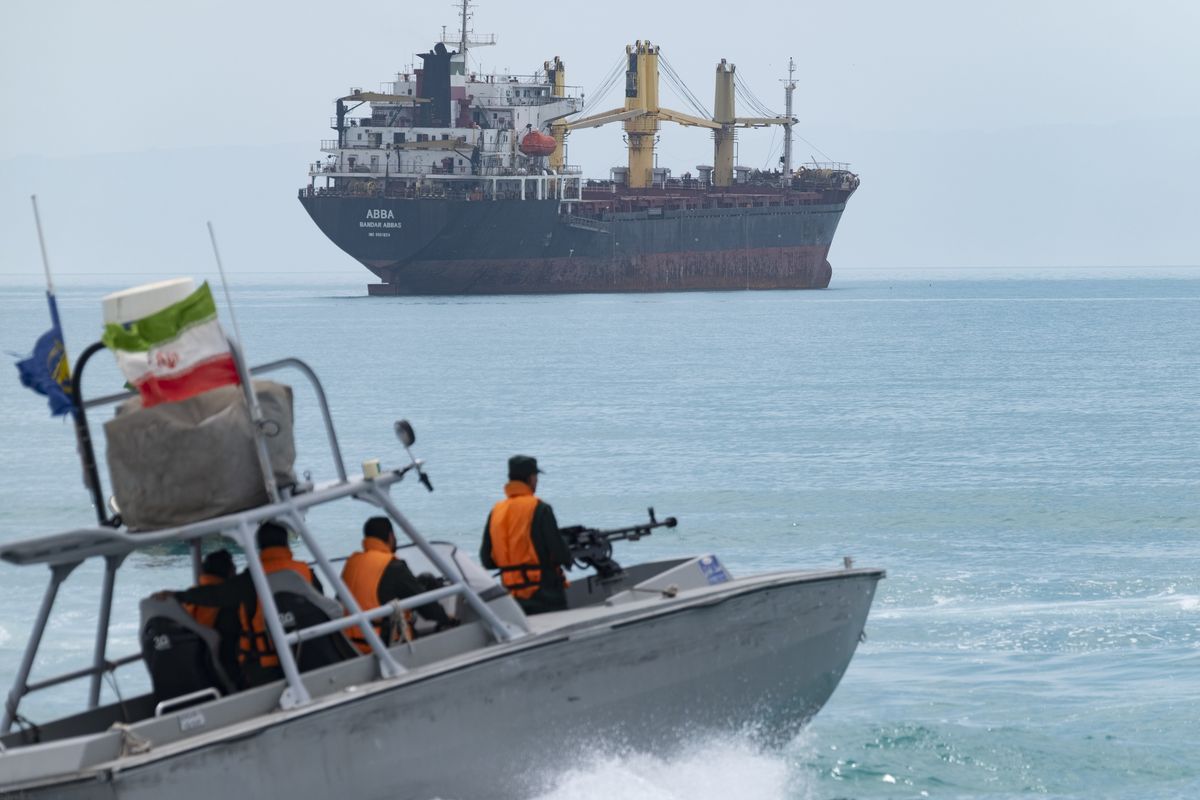U.S. President-elect Donald Trump refers to himself as “a big fan of Israel.” He supports moving the U.S. embassy from Tel Aviv to Jerusalem, a move that would undoubtedly upset the Arabs. But he also has said he would be “sort of a neutral guy” in any peace talks between the Israelis and Palestinians. In a statement published by the Israel Hayom newspaper on Friday, Trump indicated his interest in assisting with peace negotiations saying,"I believe that my administration can play a significant role in helping the parties to achieve a just, lasting peace.”
The Cipher Brief’s Fionnuala Sweeney spoke with Israeli diplomat Michael Oren about the Israeli view of a Trump administration.
The Cipher Brief: Israeli Prime Minister Benjamin Netanyahu has welcomed Donald Trump’s election. What are the expectations for Israeli-US relationships in a Trump presidency?
Ambassador Michael Oren: We anticipate that the relationship will continue to get stronger. We concluded the Obama period with the military aid package, the MOU—Memorandum of Understanding—which was $38 billion over 10 years, the largest U.S. foreign military aid package.
What has been indicated to us is that the Trump administration will have a different position both on the peace process and on the Iranian nuclear deal. This is something we’re going to have to explore with him. In theory, our position in the government is that we favor the two-state solution for the two peoples and believe the settlement issue will be resolved within direct talks.
TCB: Within direct talks?
MO: Trump’s position on the two-state solution to my mind is unclear. He has said certain things; that he would negotiate, that he would mediate. Sometimes he said he didn’t care. He has said unequivocally that he would move the U.S. Embassy from Tel Aviv to Jerusalem, and that is a step we would welcome.
TCB: Is that a serious proposition in your view? There’s already been discussion about that in the last day or two.
MO: Many candidates have said that. Barack Obama was unusual, and Hillary Clinton was unusual, because they were the first candidates in years not to promise to move the embassy. Once upon a time, it was de rigueur for anybody running for president, whether it was Democratic or Republican, to say that they would move it. Then it would be delayed because of the force majeure, because to do that would cause a riot in the Arab world.
TCB: The Arab world does have concerns about that because of exactly what Mr. Trump has said. How much of a factor are those concerns for Israel, even if President-elect Trump is in favor of it?
MO: This is not a political feeling, it’s an observation, that the Embassy move from Tel Aviv to Jerusalem would make a ripple in the Arab world and not a bang. We have had similar situations in the past where the read out from Washington was there would be riots. If you remember, there was a resolution in the UN Security Council in February 2011 against settlements. And the Obama administration came out and said that if they vetoed the resolution, American embassies would be overrun throughout the Middle East. They were adamant about this. They ended up vetoing the resolution. Nothing happened. Absolutely nothing. So the doom and gloom forecast of what happens in the Middle East because America does something may well be overblown.
TCB: Why do you think that a U.S. Embassy move to the Arab world would be more a ripple than a riot?
MO: They are involved with their own internal issues. And if they’re not involved with their internal issues, whether it be Syria or Iraq or Egypt being engaged in a civil war with ISIS, Libya with ISIS, people have other things to worry about. If they’re not worried about their internal upheaval, they’re worrying about Iran. The Palestinian issue with Jerusalem is way way down on the list of priorities of the Arab world today.
TCB: You say it’s the position of the Israeli government, the leadership, that there would be a two-state solution with the Palestinians. Is that something you think a Trump presidency will A, support and B, actively advocate?
MO: I think A is a different question than B. And you can have A without B. I know that we are A and we’re willing to go to B but only with direct negotiations, without preconditions. No parameters, no initiatives from the French or anybody else who want to sit down with the Palestinians and negotiate. My guess is that that will be the U.S. government’s position as well.
TCB: When we talk about internal positions within the Arab world and worrying about ISIS, specifically talking about Syria, what would Israel’s reaction be to a Trump administration if it has a much closer engagement with Russia than the outgoing administration in terms of fighting ISIS in Syria?
MO: We welcome any efforts to get rid of ISIS. We’re not enamored of ISIS. But there are other threats as well. Our big problem in Syria with Russian involvement there is its support for (Syrian President Bashar) Assad. Assad is the ally of Iran. Assad is the keystone in the strategic arc that extends from Tehran to Beirut, and we would not like the United States fortifying that strategic arc. Our problem is not Russia, per se, our problem is Iran.
TCB: What is your expectation that the new Trump administration will actually push for a renegotiation of the Iran deal?
MO: Our position would be any effort that would stem the expansion of Iranian hegemony in the Middle East, that would diminish the Iranian threat to Israel and to pro-American governments in the Middle East, will be welcomed. We’re not going to get involved in an internal American, perhaps constitutional issue. But that would be our position.
TCB: As the Obama administration draws to a close, how would you assess its impact on Israel over the past eight years?
MO: There have been various impacts. We have had very, very close security cooperation. I don’t think that Israel is more secure because of it, even though we’ve had very close security cooperation. It’s because of the Iranian nuclear deal, and because of the retreat of America, the perception of American retreat from the region, which meant we’re less secure rather than more secure.
TCB: The $38 billion defense deal over the next ten years doesn’t help alleviate that?
MO: Sure it helps. It can’t alleviate it entirely. On the other hand, the sort of retreat of America from the region has forced Israel, and not just Israel, to go out and be more proactive in our foreign policy, to diversify our portfolio. I’m in South Korea now, for example, and one of the reasons I’m here is because Israel wants to forge a close relationship with South Korea. And it’s because there have been a lot of changes in the world. We still have to go with what President-elect Trump has said, but there’s a strain of isolationism also in his world view. Interestingly enough, not that much different than Obama’s. They would explain it differently, and they would probably disagree. They probably wouldn’t relish my comparing the two of them, but they both see America’s role as focusing on America first.












